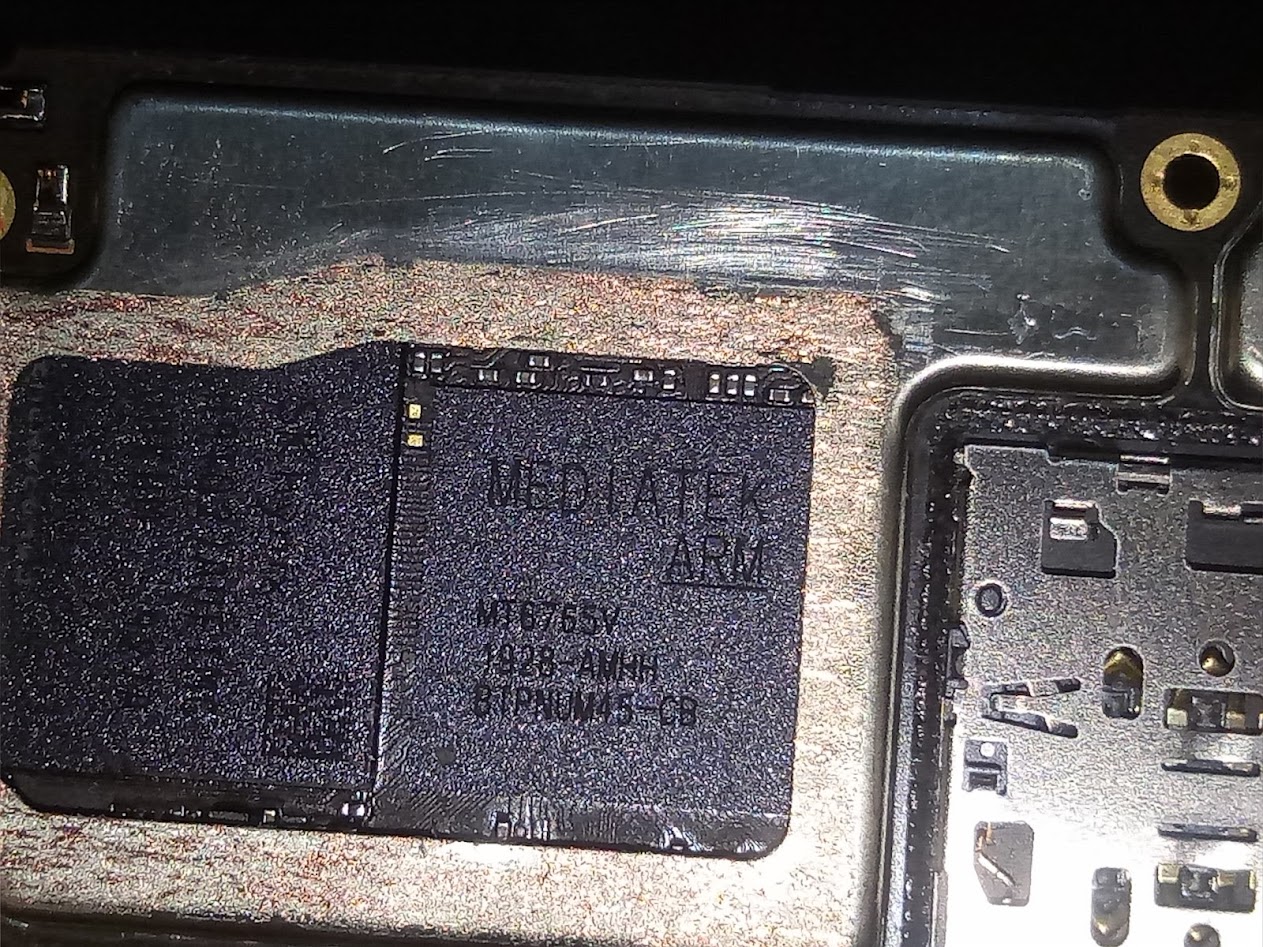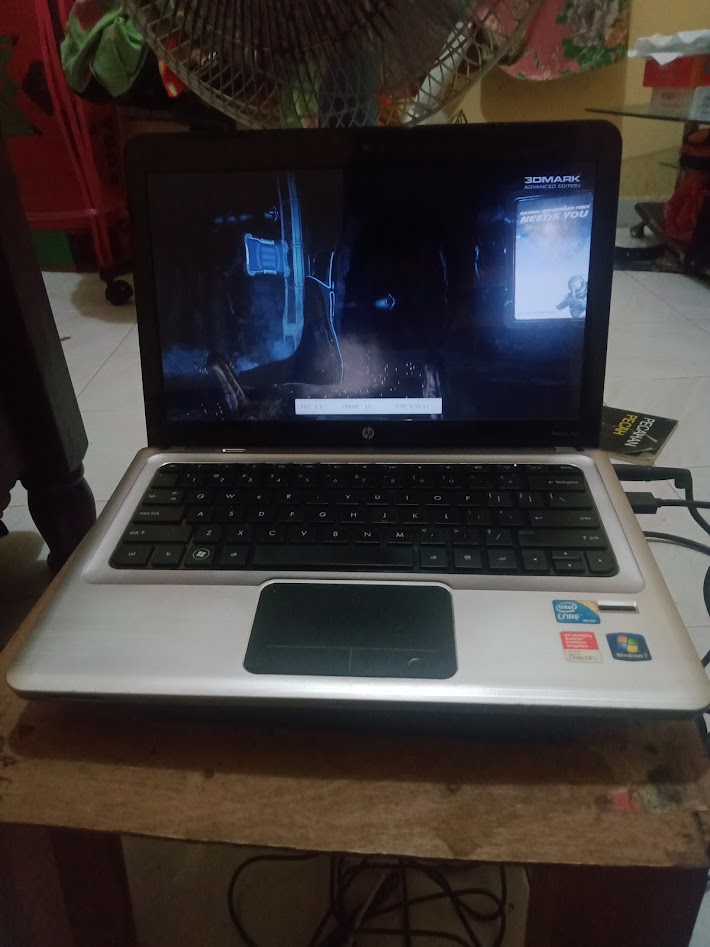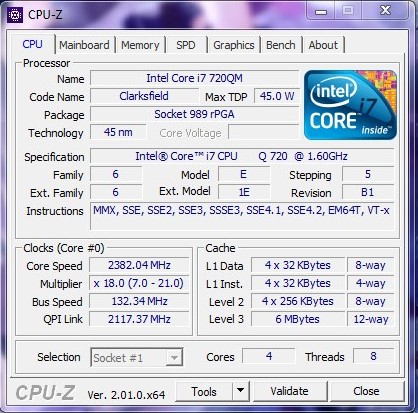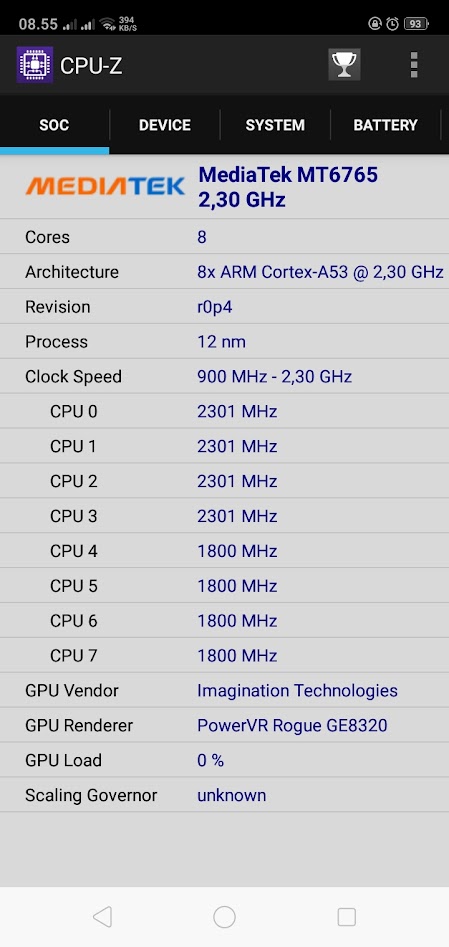Comparing: Intel Core i7 720QM vs MediaTek MT6765 Helio P35
In this comparison, we analyze two Processors: Intel Core i7 720QM and MediaTek MT6765 Helio P35, using synthetic benchmark tests to evaluate their overall performance. This side-by-side comparison helps users understand which hardware delivers better value, speed, and efficiency based on standardized testing. Whether you're building a new system or upgrading an existing one, this benchmark-driven evaluation offers valuable insights to guide your decision.

MediaTek MT6765 Helio P35
| Type: | Processors |
|---|---|
| Brand: | MediaTek |
| Model: | MediaTek MT6765 |
Specification Comparison Table
This specification comparison presents technical details of several devices or components to help you understand the key differences between each option. Use this table as a reference to determine which device best suits your needs.
| Specification | Intel Core i7 720QM | MediaTek MT6765 Helio P35 |
|---|---|---|
| Architecture | x86 | ARM |
| Technology | 45 nm | 12 nm |
| Clock | 1.6 GHz - 2.8 GHz | 1.8 GHz - 2.3 GHz |
| Core/Thread | 4 / 8 | 8 / 8 |
| Segmen | Mobile | Mobile |
Submission Comparison Table
This submission comparison table displays the number and details of benchmark data submissions from various devices or components. This information helps you understand the performance based on the benchmarks that have been tested, as well as providing an overview of the consistency and popularity of the available benchmark results.
| No. | Benchmark Software | Intel Core i7 720QM | MediaTek MT6765 Helio P35 |
|---|---|---|---|
| 1 | Geekbench3 - Multi Core |
4158 points |
3836 marks |
| 2 | Geekbench3 - Single Core |
1078 points |
833 marks |
| 3 | Geekbench4 - Multi Core |
4457 points |
3763 marks |
| 4 | Geekbench4 - Single Core |
1420 points |
886 marks |
| 5 | Geekbench5 - Multi Core |
917 points |
880 marks |
| 6 | Geekbench5 - Single Core |
282 points |
146 marks |
Submission Comparison Chart
This chart visualizes the benchmark scores comparison between two hardware devices based on submitted data.
Media Gallery
A collection of photos of tested hardware. These images can help you identify the physical form, model, and variant of the hardware in question. These photos are from our own documentation, and if they are not available we may not be able to document them.
About Hardware Intel Core i7 720QM
The Intel Core i7-720QM, launched in Q3 2009, was one of the first mobile quad-core processors to feature Intel's Nehalem microarchitecture, specifically the Clarksfield variant. Targeted at high-performance laptops, such as gaming machines and mobile workstations, the i7-720QM brought 4 physical cores and 8 threads to the mobile platform, thanks to Hyper-Threading Technology providing a significant boost in multi-threaded workloads like video editing, 3D rendering, and other professional-grade applications. The processor runs at a base clock speed of 1.6 GHz, but it can dynamically increase up to 2.8 GHz using Intel Turbo Boost, depending on thermal headroom and power availability.
Manufactured using a 45nm process, the i7-720QM has a TDP of 45W, which is quite high by today's mobile CPU standards. This thermal demand necessitated more robust cooling solutions in laptops that featured the chip. Unlike modern CPUs, the i7-720QM does not come with integrated graphics, which means systems based on this processor require a dedicated GPU often from AMD or NVIDIA for graphics processing and display output. As such, it was typically paired with mid-to-high-end discrete graphics cards in its time, making it a solid choice for gaming and multimedia laptops in the late 2000s and early 2010s.
While the Core i7-720QM was a powerhouse during its release, its performance and efficiency are significantly outpaced by modern CPUs built on smaller nodes and with higher IPC (Instructions Per Clock). Nevertheless, legacy laptops using the i7-720QM can still be viable for basic computing tasks like web browsing, document editing, or watching videos especially if paired with an SSD upgrade and increased RAM. Users running Windows 10 on such systems may experience some limitations, but with proper optimization and lightweight software, the CPU can still deliver a usable experience in non-demanding environments.
Hardware Detail:
Device: HP Pavilion dv3-4054TX
RAM: 4GB DDR3 Single Channel
OS: Windows 7, Windows 10
Tuesday, 19 July 2022 19:48:49 | Update: 1 month ago
About Hardware MediaTek MT6765 Helio P35
The MediaTek Helio P35 (MT6765) is a mid-range mobile processor introduced in 2018, designed to offer a balance between performance, efficiency, and affordability. It features eight ARM Cortex-A53 cores, all running at speeds of up to 2.3 GHz, allowing for decent multitasking and responsiveness in everyday applications.
Built using the more efficient 12nm fabrication process, the Helio P35 is a significant improvement over older chips like the MT6750 or MT6737, both in terms of power consumption and thermal performance. This makes it well-suited for entry-level and mid-range smartphones with tighter thermal and battery constraints.
For graphics, the SoC integrates the PowerVR GE8320 GPU, which supports Full HD+ displays and provides enough power for media consumption and light gaming. It also includes support for AI-enhanced features, such as image processing and face detection, though without a dedicated NPU, the AI performance is modest compared to higher-tier chipsets.
While the Helio P35 is not intended for high-performance gaming, it performs well for tasks like social media, video playback, camera use, and general app usage. However, more demanding 3D games will run only at low graphics settings with occasional frame drops.
Hardware Detail:
Devices: OPPO A5s & OPPO A15s.
Device Specifications: MediaTek MT6765, 3/32 (A5s), 4/64 (A15s), Android 8 (A5s), Android 10 (A15s).
Room Temperature: 30°C based on DHT11 Sensor.
* Note: The OPPO A15s was used in some tests due to compatibility issues with Android 8 on A5s in certain applications.
Sunday, 08 September 2019 11:02:46 | Update: 1 month ago





